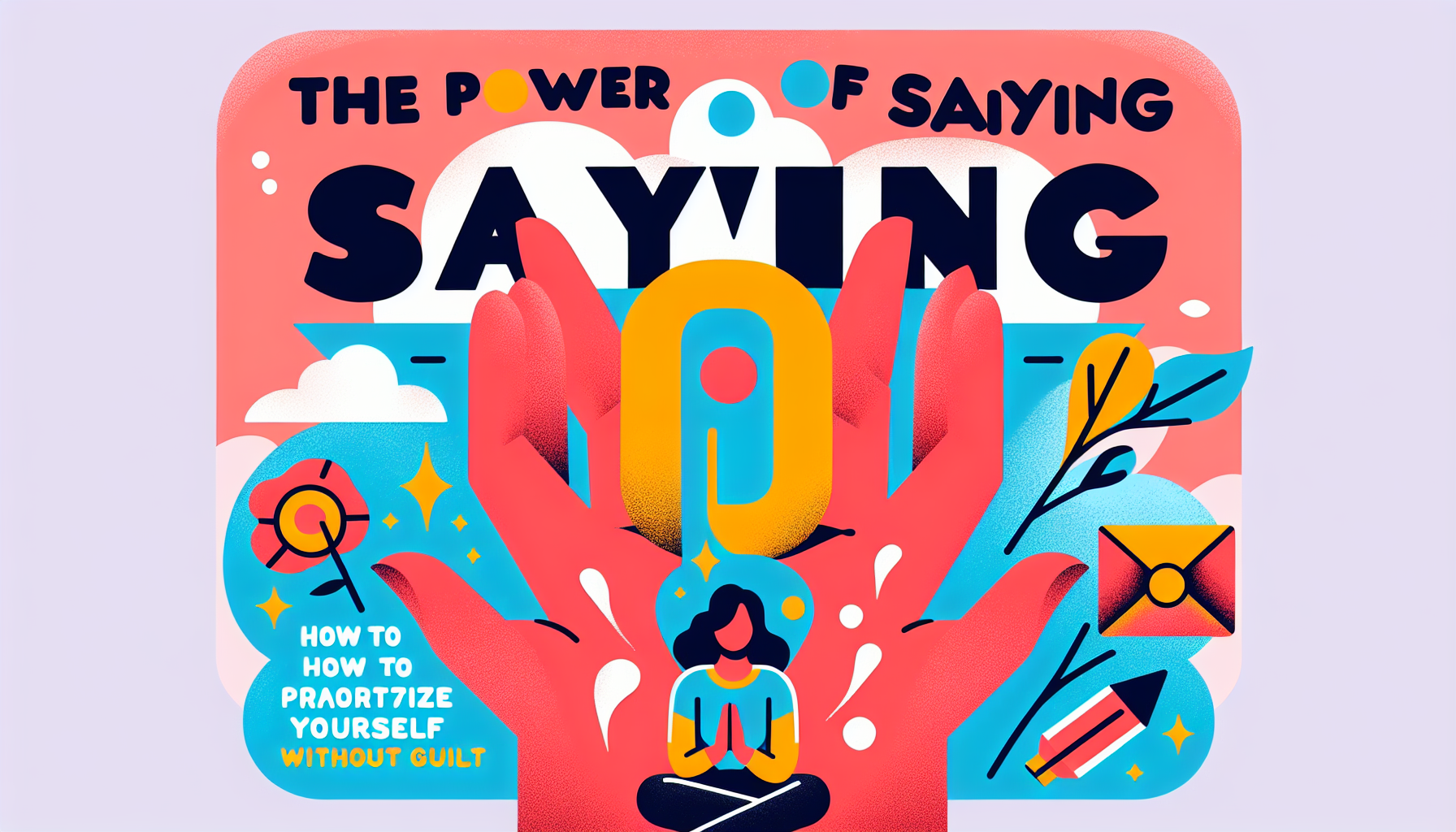In a world that often glorifies busyness and self-sacrifice, the ability to say no can feel like an act of rebellion. Many of us struggle with the notion of prioritizing our own needs over those of others, fearing that saying no might lead to disappointment or conflict. However, understanding the power of saying no is essential for our mental health and overall well-being. This blog will explore the importance of setting boundaries, how to say no gracefully, and why prioritizing yourself is not only beneficial for you but also for those around you.
The Importance of Saying No
Saying no is not just about rejecting a request; it’s about affirming your own values and priorities. When you say yes to everything, you risk overcommitting yourself, leading to stress, burnout, and resentment. Here are a few compelling reasons why saying no is crucial:
1. Preserving Your Time and Energy
Time is a finite resource, and every commitment you take on demands both your time and emotional energy. By saying no to requests that don’t align with your priorities or values, you create space for activities that truly matter to you. This could mean spending more time with loved ones, pursuing a hobby, or simply taking time to relax and recharge.
2. Building Self-Respect and Confidence
Every time you say no in a situation where you feel pressured to say yes, you reinforce your self-worth. It is a powerful affirmation that your needs and desires are valid. Over time, this practice can significantly boost your confidence and self-respect. You begin to recognize that it’s okay to prioritize yourself, leading to a healthier self-image.
3. Enhancing Relationships
It may seem counterintuitive, but saying no can actually strengthen your relationships. When you set clear boundaries, you communicate what you can and cannot handle. This clarity helps others understand your limits and fosters mutual respect. Moreover, when you say yes to things that truly matter, your presence is more genuine and engaged, which enhances the quality of your interactions.
How to Say No Gracefully
Saying no doesn’t have to be awkward or confrontational. Here are some strategies to help you decline requests gracefully:
1. Be Honest and Direct
You don’t need to provide lengthy explanations for your decision. A simple, honest response can suffice. For example, you might say, “Thank you for thinking of me, but I can’t take on any additional commitments right now.” Being direct shows respect for both your time and the other person’s request.
2. Offer Alternatives (When Appropriate)
If you feel inclined, you can suggest alternatives that may help the requester without overextending yourself. For instance, if a colleague asks for help on a project and you can’t assist, you might say, “I can’t take that on right now, but I recommend reaching out to [Name], who has experience with that.”
3. Practice Assertiveness
Assertiveness is key to setting boundaries. Use “I” statements to express your feelings and decisions clearly. For example, “I need to prioritize my health right now, so I have to decline.” This approach emphasizes your needs without placing blame or guilt on others.
4. Don’t Apologize Excessively
While it’s courteous to express gratitude for the opportunity, over-apologizing can undermine your position. A simple “Thank you for understanding” is typically sufficient.
5. Understand It’s Okay to Disappoint
It’s natural to want to be liked and to fear disappointing others. However, it’s important to recognize that everyone has their own needs and priorities. Saying no may be disappointing to someone in the moment, but it’s essential for your well-being. Over time, people will respect your boundaries, and you’ll find that disappointment is often short-lived.
Overcoming Guilt
One of the most significant barriers to saying no is guilt. We often associate saying no with being selfish or unkind. To overcome this mindset, consider the following:
1. Reframe Your Thinking
Instead of viewing saying no as a negative act, see it as a way of taking care of yourself. Remind yourself that self-care is not selfish; it’s necessary. By prioritizing your needs, you’re in a better position to help others when you can.
2. Focus on the Positive Outcomes
Think about how saying no will benefit you and potentially even the other person in the long run. When you’re not overwhelmed, you can engage more fully in the commitments you choose to take on. This leads to more meaningful interactions and contributions.
3. Reflect on Your Values
Take time to reflect on what truly matters to you. When you have a clear understanding of your values and priorities, it becomes easier to say no to things that don’t align with them. This clarity can help alleviate guilt, as you will be acting in accordance with your true self.
4. Seek Support
If you struggle with guilt, consider discussing your feelings with a trusted friend or therapist. They can provide support and perspective, helping you to navigate the emotions that arise when you assert your boundaries.
Conclusion
The power of saying no is profound. It allows you to reclaim your time, energy, and self-respect. By learning to say no gracefully and without guilt, you prioritize your own well-being and enhance your relationships. Remember, setting boundaries is not only an act of self-love; it’s a necessary skill for leading a fulfilling and balanced life. Embrace the power of no, and give yourself permission to prioritize your needs without guilt. You deserve it.





Leave a Reply